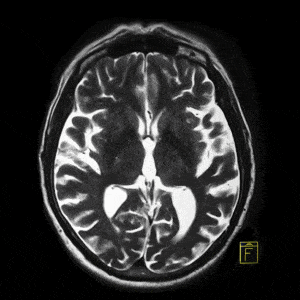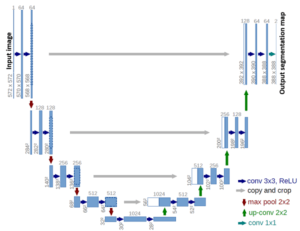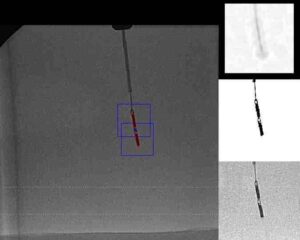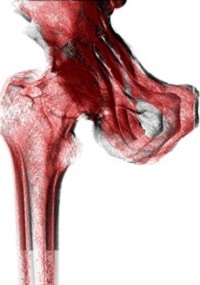RSIP Vision has develop an efficient tool for clinical trials in the pharma industry – the automated RECIST measurement. The gold standard in measuring the evolution of solid tumors, along the treatment with a tested drug, is the RECIST score (Response Evaluation Criteria in Solid Tumors), which is determined by the radiologist after inspecting patient CT slices: the radiologist measures the longest diameter of 2-5 of the largest tumors through the CT slices. In this way, it is possible to track over time the progression of a tumor. The evolution of the RECIST score will show whether the disease has progressed, stabilized or worsened. This estimation process is time-expensive, it requires a human expert, it is mostly visual and as such it is prone to intra and inter errors, especially when tumor shapes are complicated. Radiologist must visually go through several slices before assessing on which slice(s) tumors are larger.
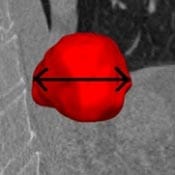
Automated RECIST measurement with AI
RSIP Vision’s algorithm makes all this process more precise and stable. The algorithm is designed to search for the largest diameter in the slices and it chooses on which slices the most significant information is found. In addition, the automated RECIST score can be measured on all lesions in the CT scans, breaking the limit of 2-5 apparently larger lesions. Also, it is possible to repeat the CT scan after time and to register the new results with the significant slices from the previous control. The AI software verifies the status of the tumor in the current scan and compare it to previous scans, offering an objective assessment of the course of the disease. In turn, this result enables to properly evaluate the objective response to the cancer treatment(s) being clinically tested.
The scientific basis of this new automated procedure for RECIST measurement with Deep Learning has been confirmed by a recent academic study published by Tang et al.: Semi-Automatic RECIST Labeling on CT Scans with Cascaded Convolutional Neural Networks. Their study confirms that “system performs more stably and with less variability, suggesting that RECIST annotations can be reliably obtained with reduced labor and time”.
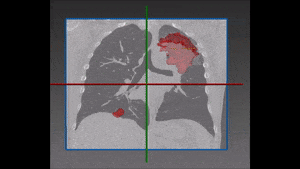
Automated RECIST measurement with Deep Learning, as performed by RSIP Vision and other researchers, is confirmed to produce scores annotations with less variability with shorter use of expert time. This fully automated procedure proves to be very precious along clinical trials aimed at verifying whether a new drug leads to complete response, partial response, stable disease or progressive disease. Contact now RSIP Vision’s engineers to discuss your own project!

